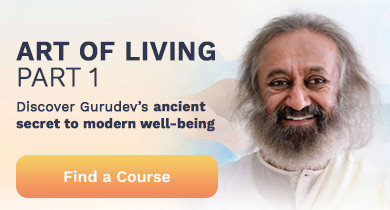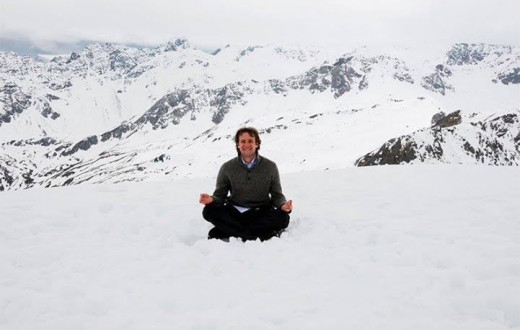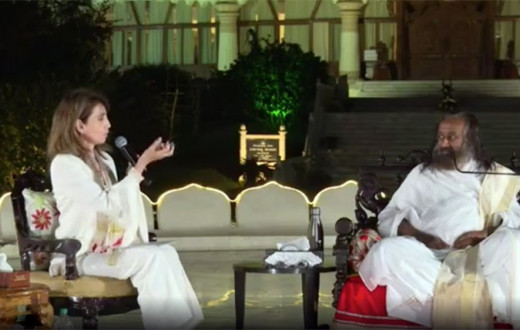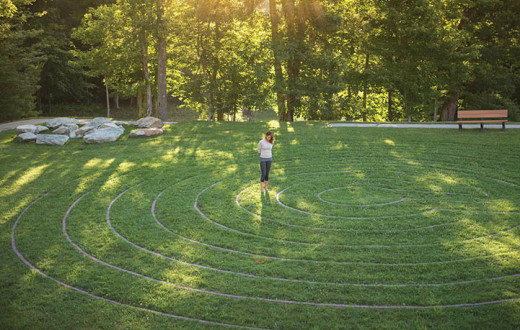Updated on: September 08, 2021
If you want to have a deep and meaningful meditation practice, you must learn how to do nothing, want nothing, and be nothing.
What is Meditation?
Before understanding what meditation is, let us first understand what is not meditation. Concentration is not meditation. The ability to concentrate is an outcome of good meditation practice, but concentration itself is not meditation. Engaging in an activity you like (example: running, singing, drawing, etc.) is not meditation. Deep sleep is also not meditation. Giving up everything and becoming a recluse is not meditation either.
Then what is meditation?
Meditation is the delicate and effortless art of doing nothing. It is the skill to take deep rest while being conscious and alert. Beyond all the chatter and noise in our mind, there is a silent, peaceful, blissful, beautiful space that exists in all of us, a place that is intact and unbroken. Turning our attention to this silent chamber is meditation. This silence cleanses the mind, giving it a much-needed rest, and makes room for better perceptions and new ways of looking at life and its challenges.
Can I learn to Meditate?
Yes, you can! Human Beings are gifted with fingers. These fingers can naturally and easily fold or unfold. With some training, we can also learn the art of how to create melodious music using our fingers. This ability to create music using our fingers is also naturally present within us: the skill simply has to be nurtured with proper training and practice.
In the same way, human beings are also gifted with a beautiful mind through which we think, perceive, analyze, and make decisions. Just as all these skills are natural to the human mind, so is meditation.
Meditation is a skill that helps us to become calm and get in touch with the source of energy within us. When the mind becomes calm and serene, it gains access to the enormous intelligence and energy that we all possess. It is the skill to take a deep rest, but at the same time, remain alert and conscious.
In order to start meditating, you don’t have to resort to becoming a recluse in the Himalayas or practicing severe penance—all you need is the right guidance from a teacher to learn the skills to calm your mind. Doing meditation daily helps you to tap into the inner energy you never knew existed.
What can I do for a deeper meditation practice?
The biggest hindrance to meditation is trying to meditate. If you are trying, you are not meditating. When all trying stops, meditation begins.
The outer world is governed by effort. To accomplish anything in the outer world, you need to put in an effort. However, the inner realms are governed by effortlessness. Meditation is the art of being completely effortless. The three golden principles taught by the Art of Living effortlessly help you dive deep into meditation.
What are the three golden principles for deep meditation?
There are three golden rules to follow in meditation: achah, aprayatna, and akinchan: I want nothing, I do nothing, I am nothing.™

1) Achah, having no desires:
You meditate with the intention, “I want nothing for the next few minutes”. If your mind is focused on desires, meditation cannot happen. Any desire will become an obstruction for meditation. So for the 20 minutes of meditation, we don’t want anything. This is the first golden rule.
2) Aprayatna, dropping all efforts:
The second golden rule is “I do nothing”. You just be. You do not even make an effort to think “I want nothing” and “I do nothing”, let there be just an effortless intention to follow these principles.
3) Akinchan, thinking “I am nothing”:
There are many roles we play in our lives. Carrying an identity plays with your mind and doesn’t allow it to settle down. While meditating, we drop all notions about ourselves of being rich, poor, intelligent, stupid, male, female, or any other, and become nothing. During meditation, if you think you are somebody great or you think that you are somebody hopeless, there is no way you can settle down to that deepest core of the being.
To listen to what Gurudev Sri Sri Ravi Shankar says, click here!
As we bring these three rules into our awareness—I want nothing, I do nothing, I am nothing—just for that short time, the mind goes back to its source and that is the source from which everything has come.
Effortlessly becoming aware of these three rules can be our initial step to settle into that infinity, the consciousness of which we are all made up of.
Want to learn more about how to meditate? Please sign up for a free breath and meditation session by clicking here.
This article is compiled by Sejal Shah based on Gurudev Sri Sri Ravi Shankar’s different wisdom talks on meditation.





























